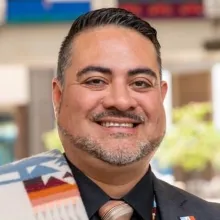The course will explore the various laws and regulations that federally recognized Tribes are required to follow in order to conduct Indian Gaming as a form of economic development. Key topics include Federal Indian Law and policy, the history and origins of Indian Gaming, as well as state and tribal agreements/relations related to gaming operations. Additionally, the course will cover tribal regulatory responsibilities concerning their gaming facilities. It will also examine the roles and responsibilities of Tribes in their capacity as governments, ongoing efforts for securing tribal rights to self-governance and self-determination, and the dynamics between state laws and tribal gaming operations across the United States. Comparative analyses will highlight how different tribes manage their gaming operations in varying legal environments.
Key Questions:
- How does law function to create a framework for tribes choosing to operate gaming enterprises as a form of economic development?
- How can federally recognized tribes use law to secure rights and exercise tribal self-governance and self-determination through gaming enterprises?
- What role do tribes, states, and the federal government play in the operation of tribally owned gaming operations?
Class Schedule:
In person on April 10–11, 2025 from 9:30 AM to 3:30 PM at the University of Arizona Scottsdale Center.
Course fee:
Tuition for this course is $500. This includes coffee, breakfast and lunch for both days. Group discounts are available, email Law-PYTMicrocampus@email.arizona.edu for group rates.
Instructor:

Francisco (Frank) Olea
Francisco Olea is an enrolled member of the Pascua Yaqui Tribe from the Pascua Pueblo reservation in Tucson, AZ. Olea has worked in the gaming industry since 2001, holding various supervisory and management positions with the Pascua Yaqui Tribe and the Tohono O’odham Nation in both the Tribal Gaming Office and Gaming Operations. Olea received his Bachelor of Arts from The University of Arizona, and his Juris Doctor from the University of Arizona’s James E. Rogers College of Law.
